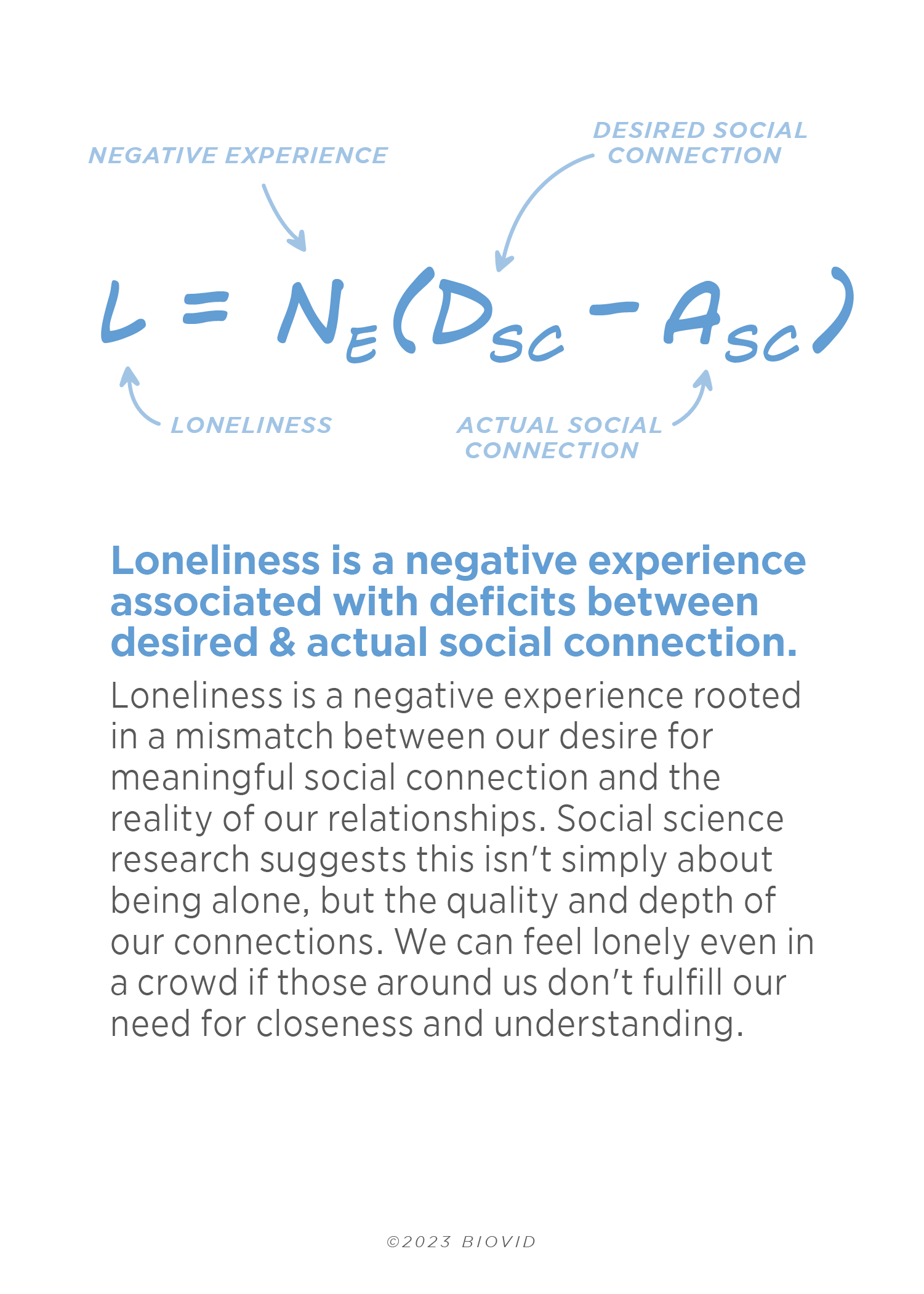
Introducing…
BioVid’s Cognitive Equations Dictionary
BioVid’s Cognitive Insights Dictionary simplifies complex human phenomena into easy-to-grasp formulas. These equations are offered as aids to comprehending the challenging experiences associated with living and treating chronic and acute health conditions.
With our periodic releases of such equations, we aim to enhance our industry’s understanding of complex human experiences without oversimplification or dogmatic definitions. The Dictionary of Cognitive Equations intends to appreciate the profound depth and complexity of the human experience rather than provide once-and-for-all interpretations.
Each equation is be grounded in published academic research and writings.
Interact to Learn More
Despair: D = S - M
BioVid Cognitive Equations Dictionary
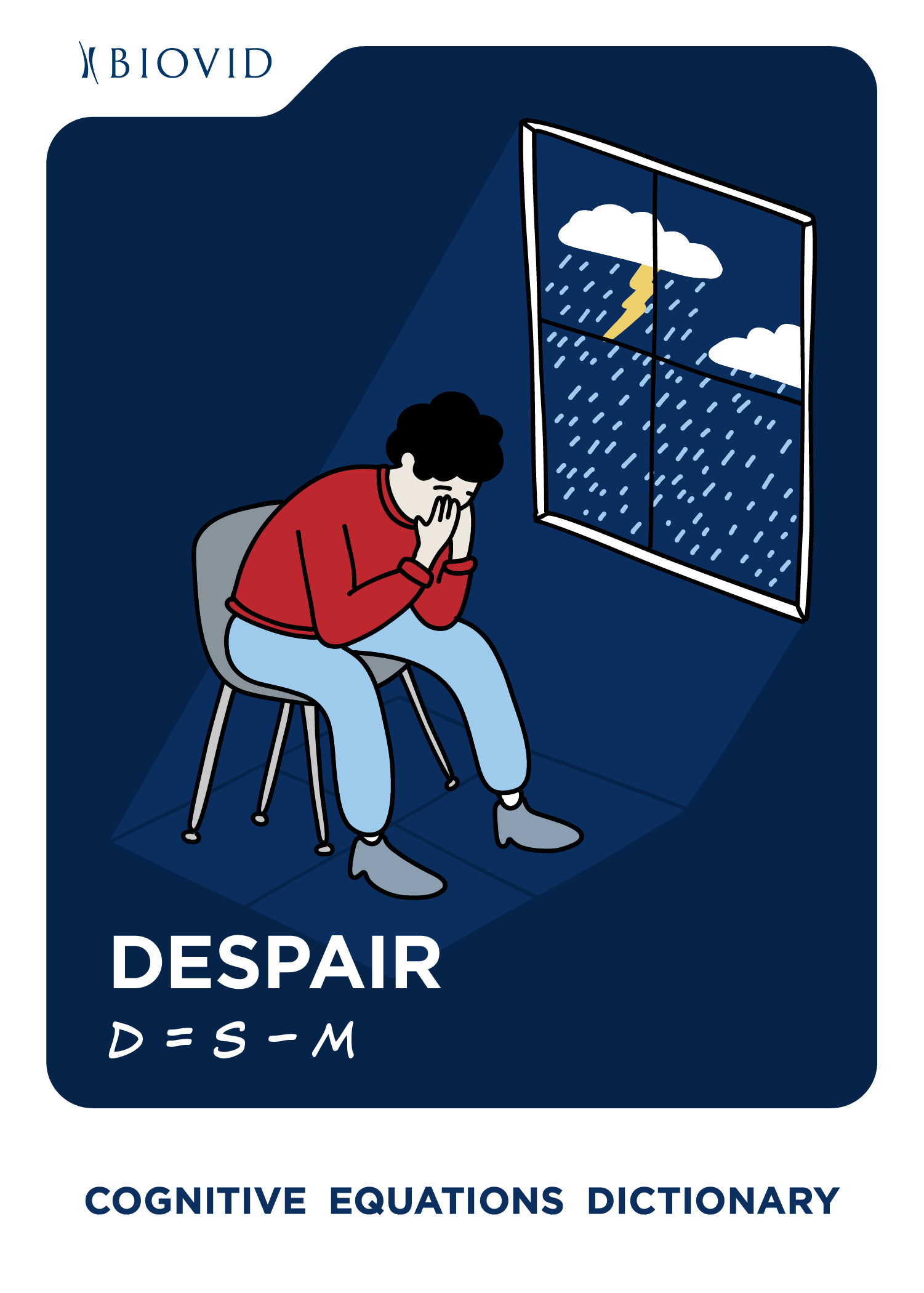
Despair: D = S - M, where D is Despair, S is Suffering, and M is Meaning.
Despair is suffering without meaning. Renowned psychiatrist and Holocaust survivor Viktor Frankl proposed the equation for despair: "suffering without meaning“. Frankl found that suffering without a sense of purpose leads people to despair, sometimes undermining the will to live. His thinking highlights the crucial role that meaning plays when we face hardships in life such as living with a chronic disease.
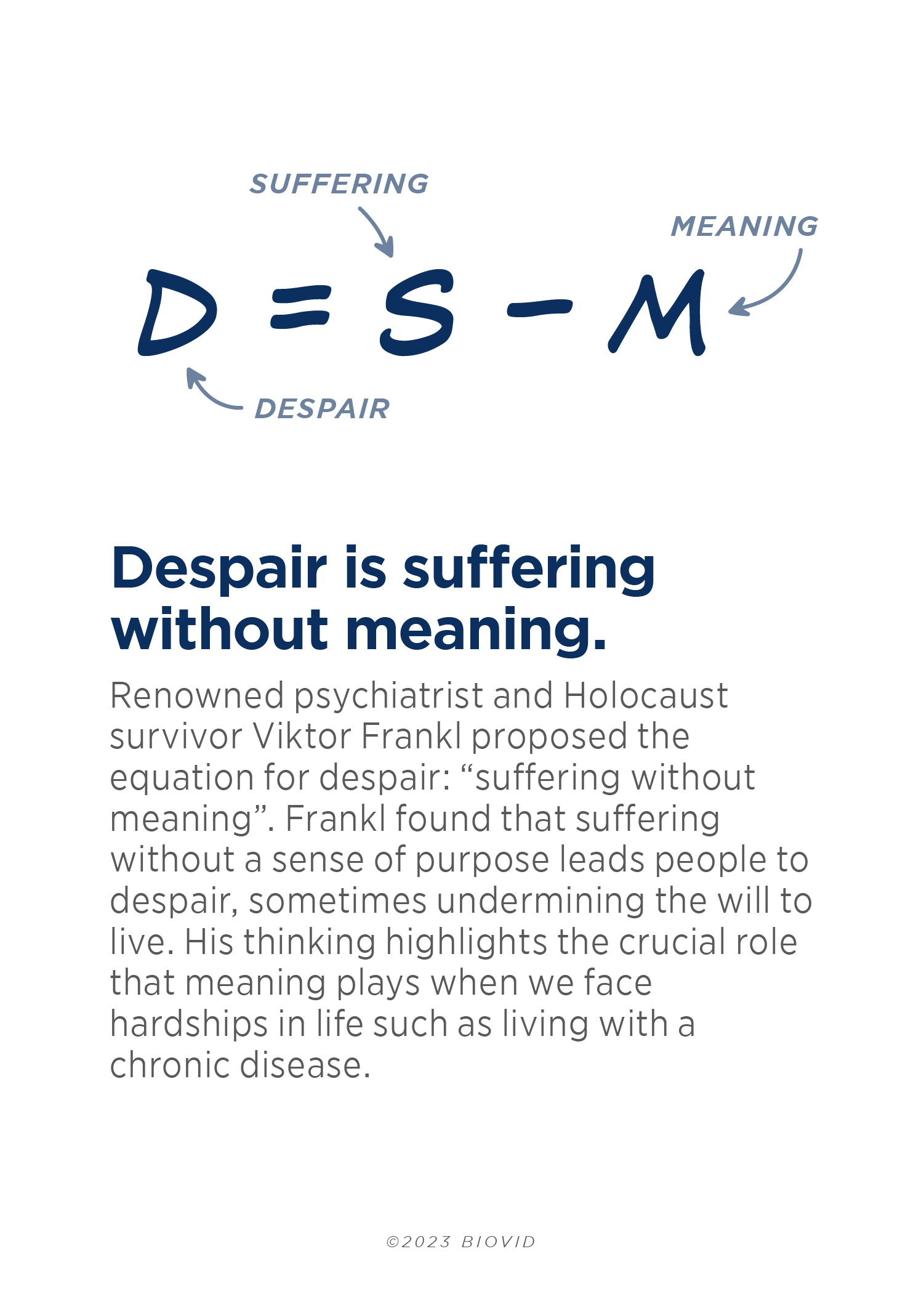
Suspense: S = U + (H + F)
BioVid Cognitive Equations Dictionary
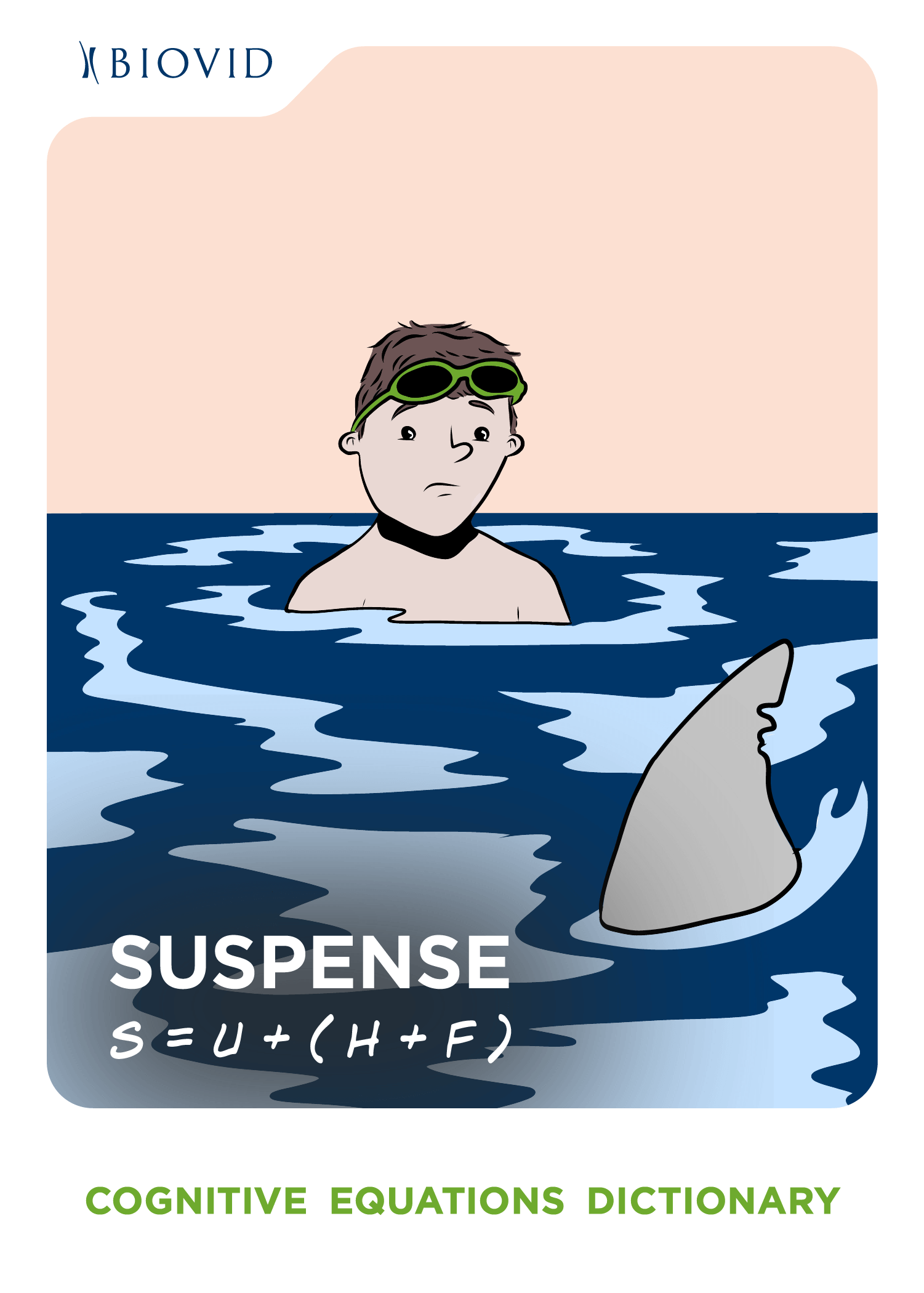
Suspense: S = U + (H + F), where S is Suspense, U is Uncertainty, and H + F is Hope and Fear simultaneously.
Suspense is a state of uncertainty combined with an ambivalent experience of hope and fear. Per social psychologists, suspense is the co-occurrence of cognitive uncertainty and the simultaneous experience of hope and fear. Suspense is a cognitive emotional state of not knowing that generates an emotional tension in situations ranging from watching scary movies to living with an unpredictable chronic disease.
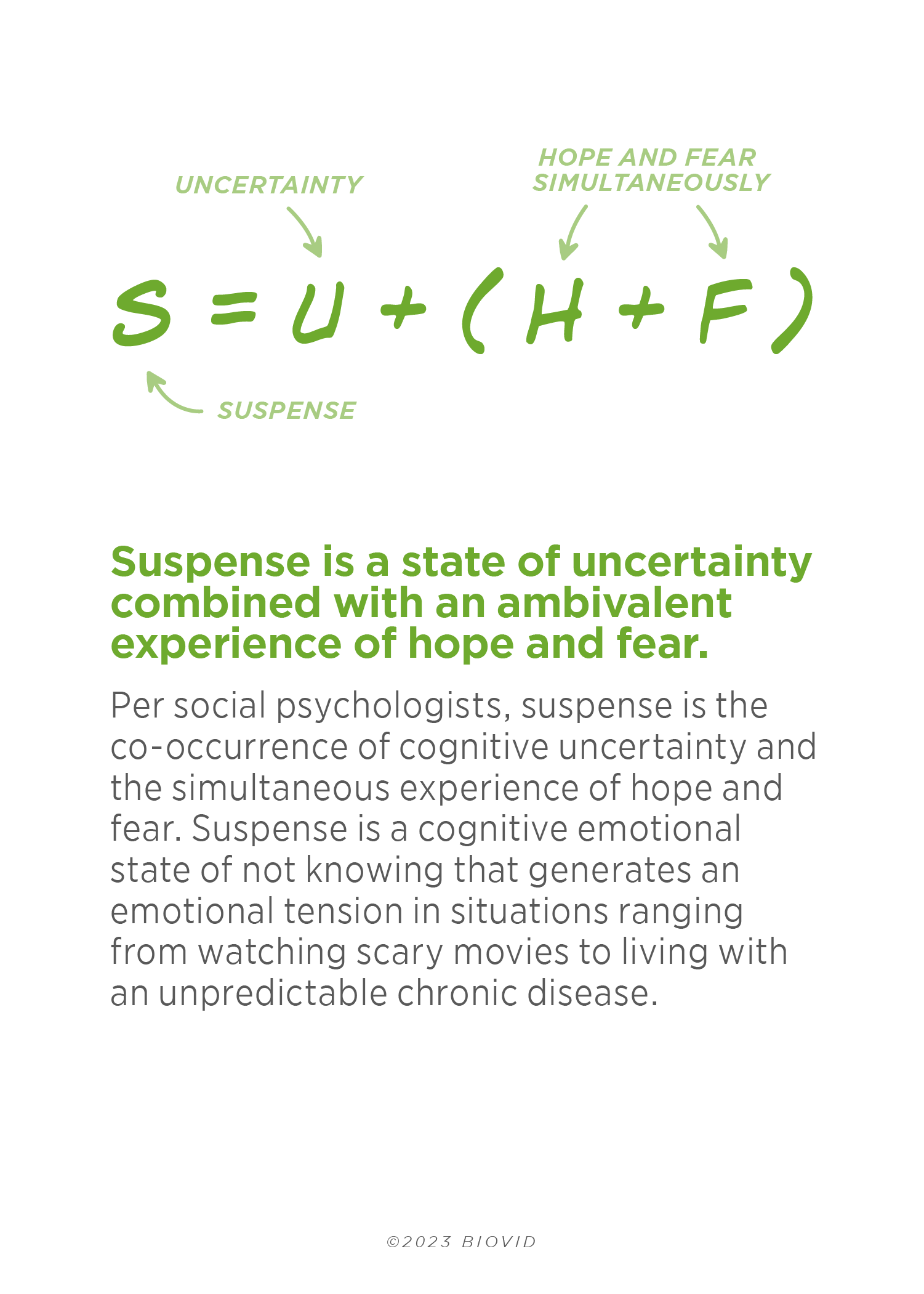
Conformity: C = NA + IA
BioVid Cognitive Equations Dictionary
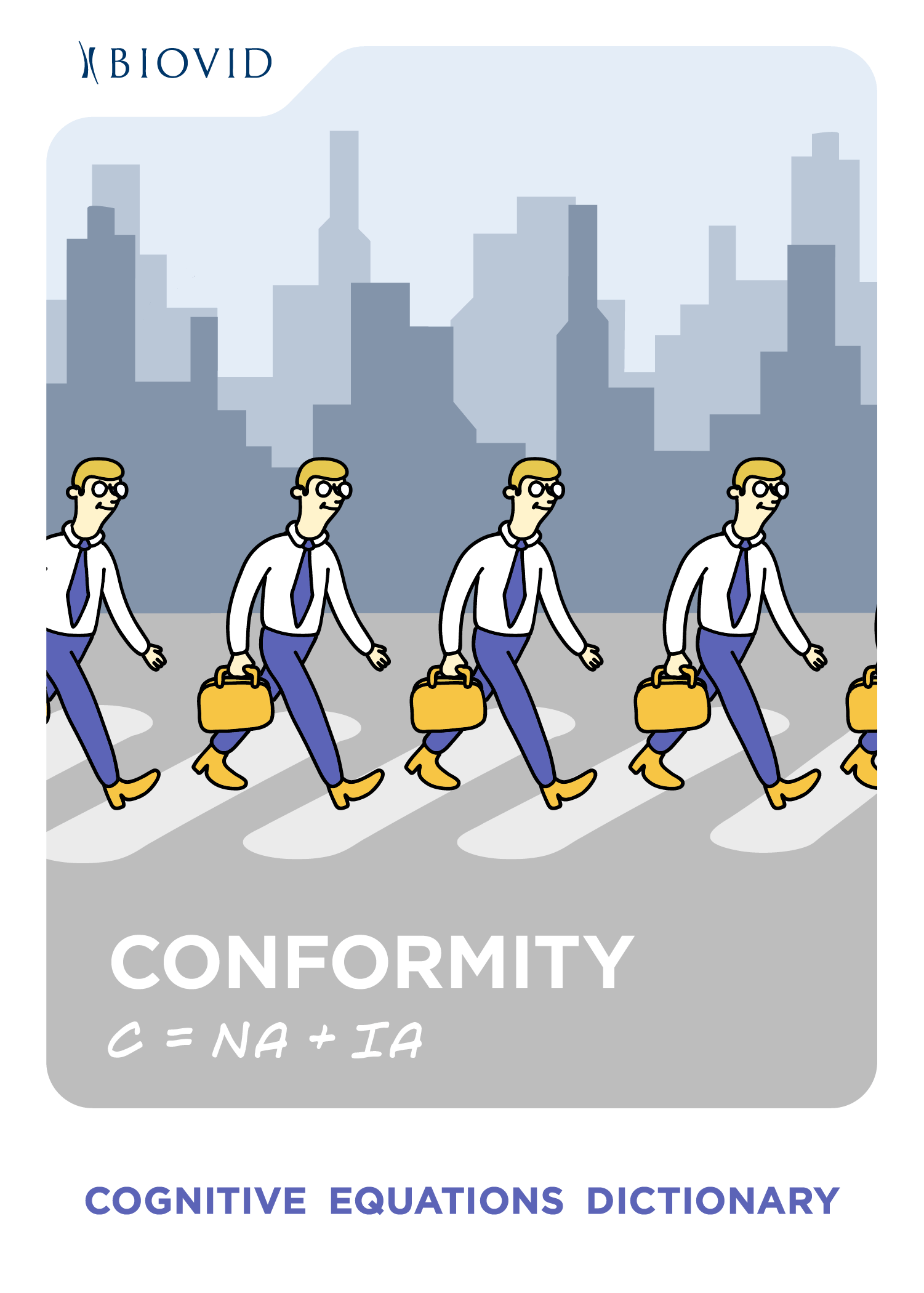
Conformity: C = NA + IA, where H is Conformity, NA is Norm Awareness, and IA is Imitative Action.
Conformity is adopting beliefs and behaviors of others to align with perceived norms. Conformity is a sociological process where individuals adapt attitudes and actions to match social norms. It entails recognizing established norms and imitating others' behaviors, influencing group cohesion and cultural values. Sociologists study conformity to comprehend its impact on individuality, group dynamics, and the delicate balance between adhering to society's standards and preserving one's unique identity.
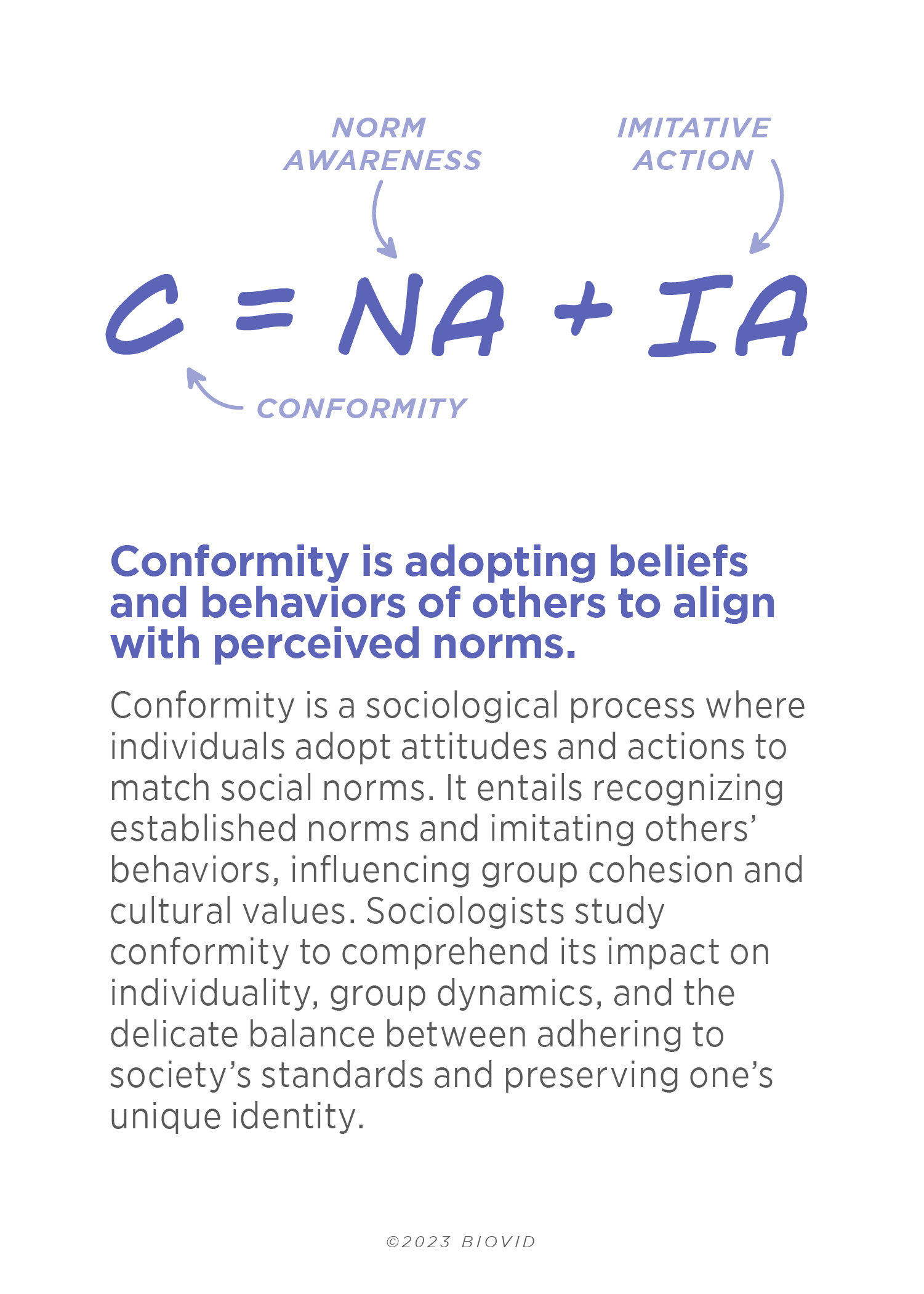
Bias: B = C + E
BioVid Cognitive Equations Dictionary
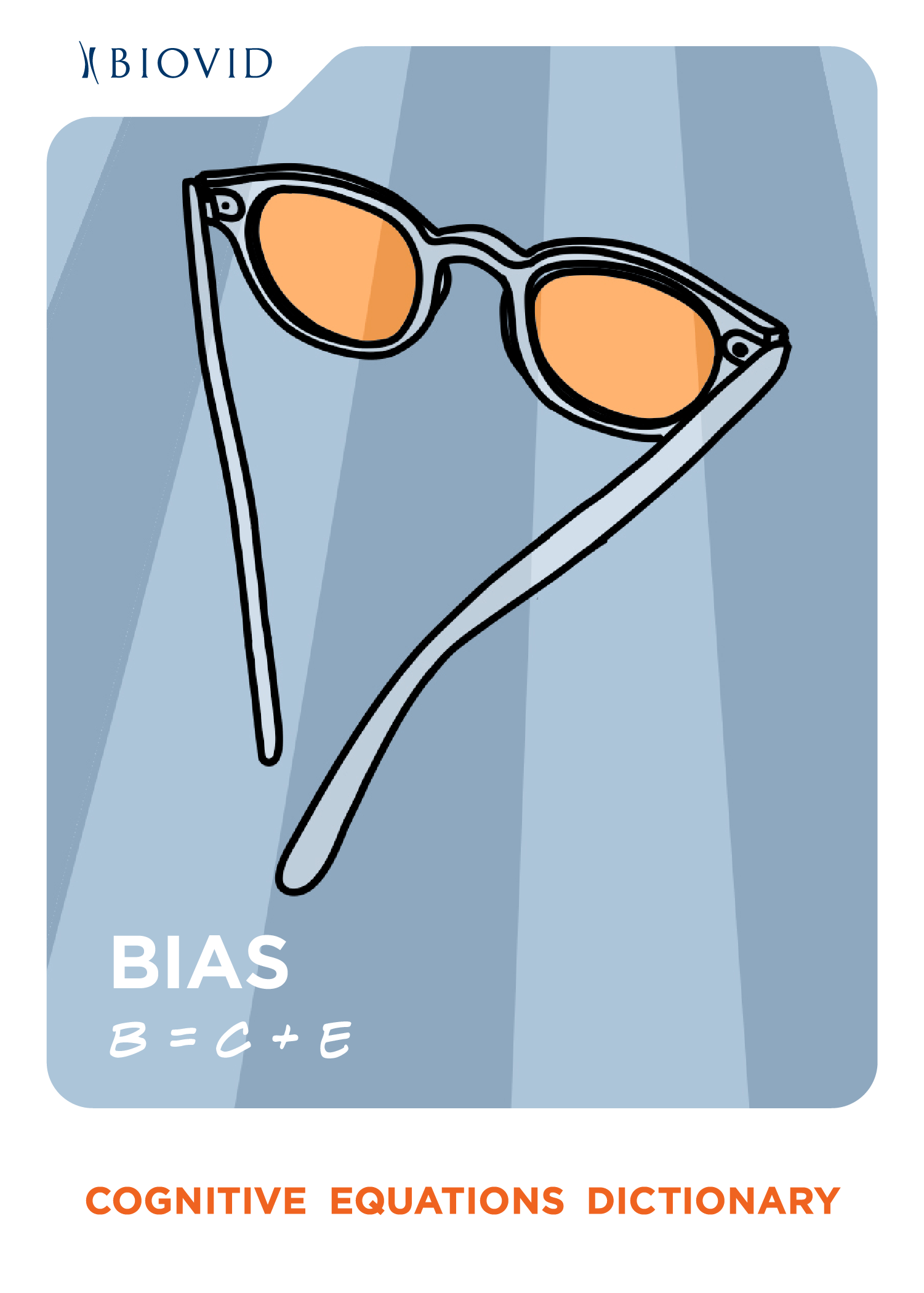
Bias: B = C + E, where B is Bias, C is Cognition, and E is Error.
Bias is an error in cognitive processing. Behavioral economics defines bias as errors in cognitive processing that can cause individuals to make decisions that deviate from rationality. Biases result from diverse factors including preconceived beliefs, limited attention spans, stress and fatigue, and the nature of information processing itself. Biases have been shown to impact patient and physician decision-making alike, leading to people becoming “predictably irrational”.
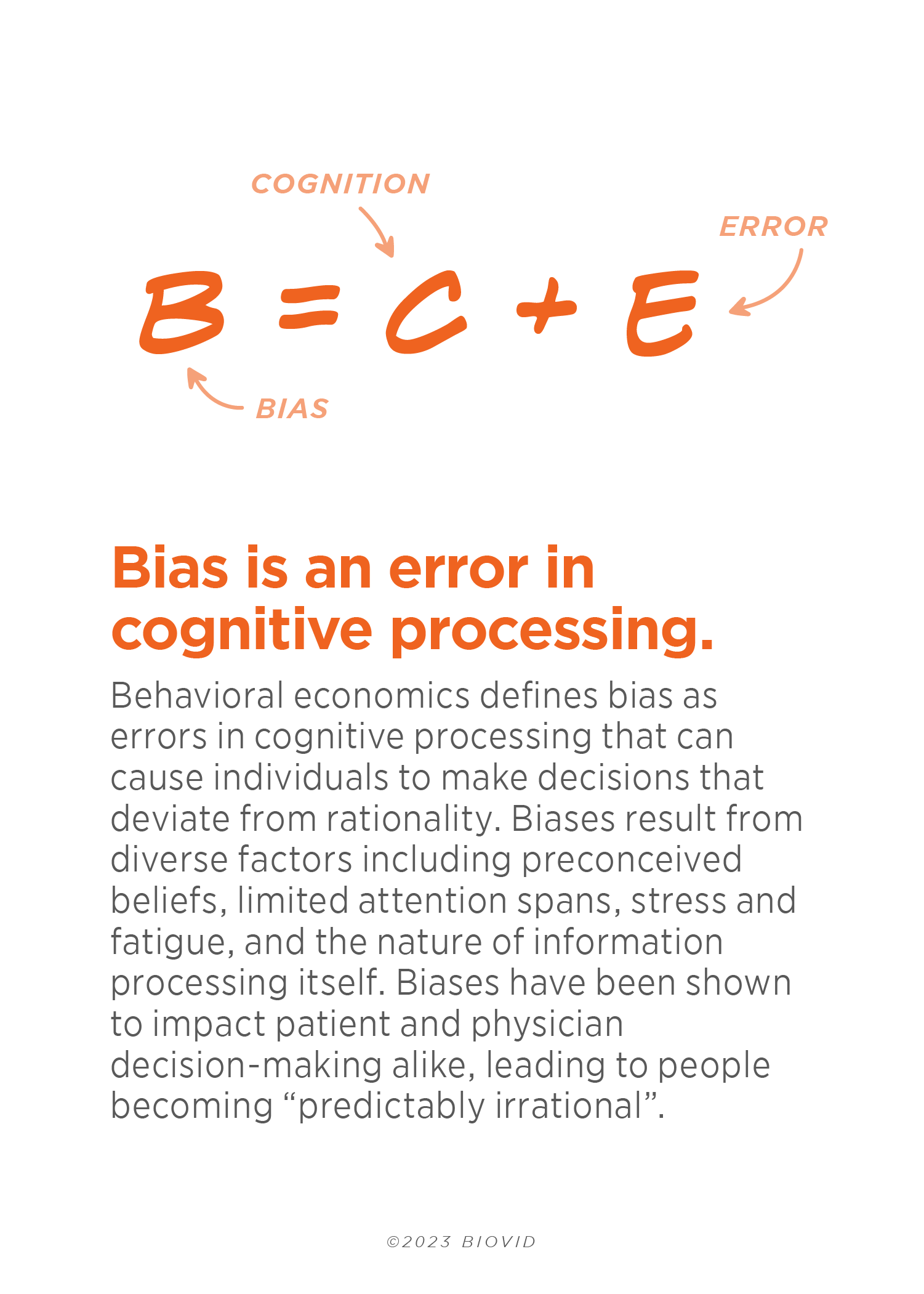
Habit: H = SC + B
BioVid Cognitive Equations Dictionary
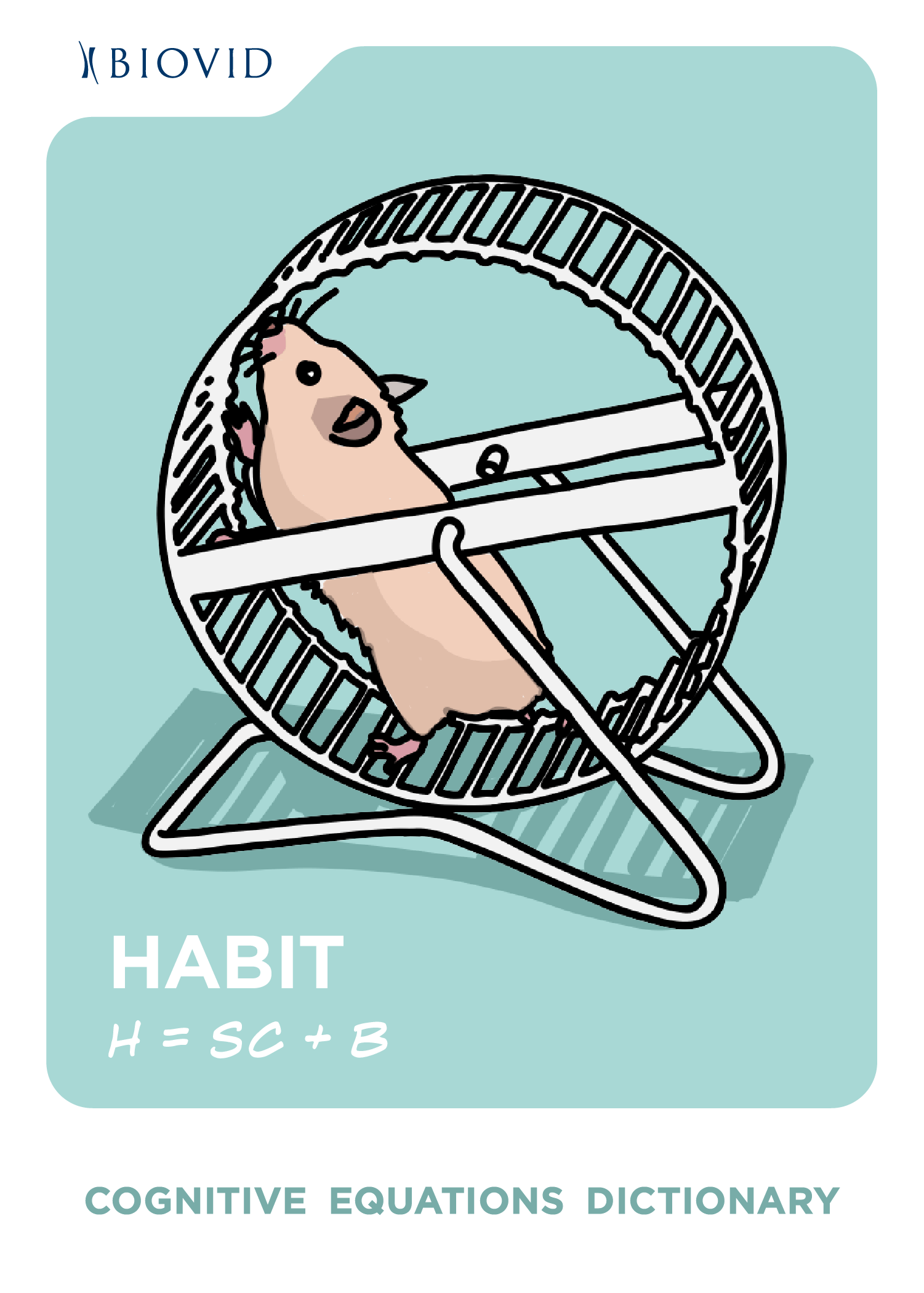
Habit: H = SC + B, where H is Habit, SC is Subconscious, and B is Behavior.
Habit is a subconscious behavior. Psychologist B. F. Skinner believes that habits are learned, reinforced behaviors through repetition. When a behavior is followed by a desirable outcome, it is most likely to be repeated in the future, forming a habit. Whether they are good habits or bad habits, these consistent behaviors take little effort with big impact in our lives.
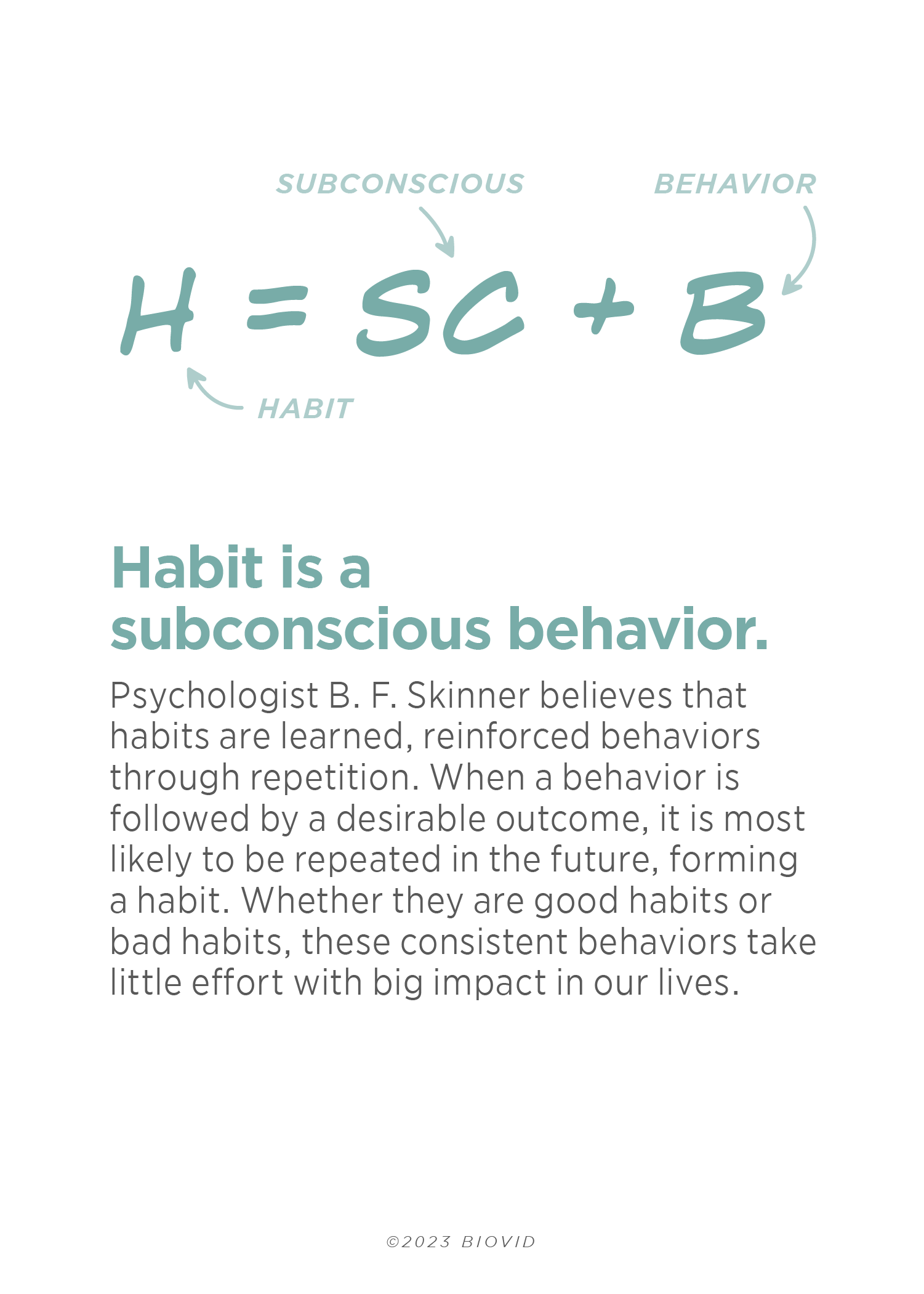
Desire: D = A + O
BioVid Cognitive Equations Dictionary
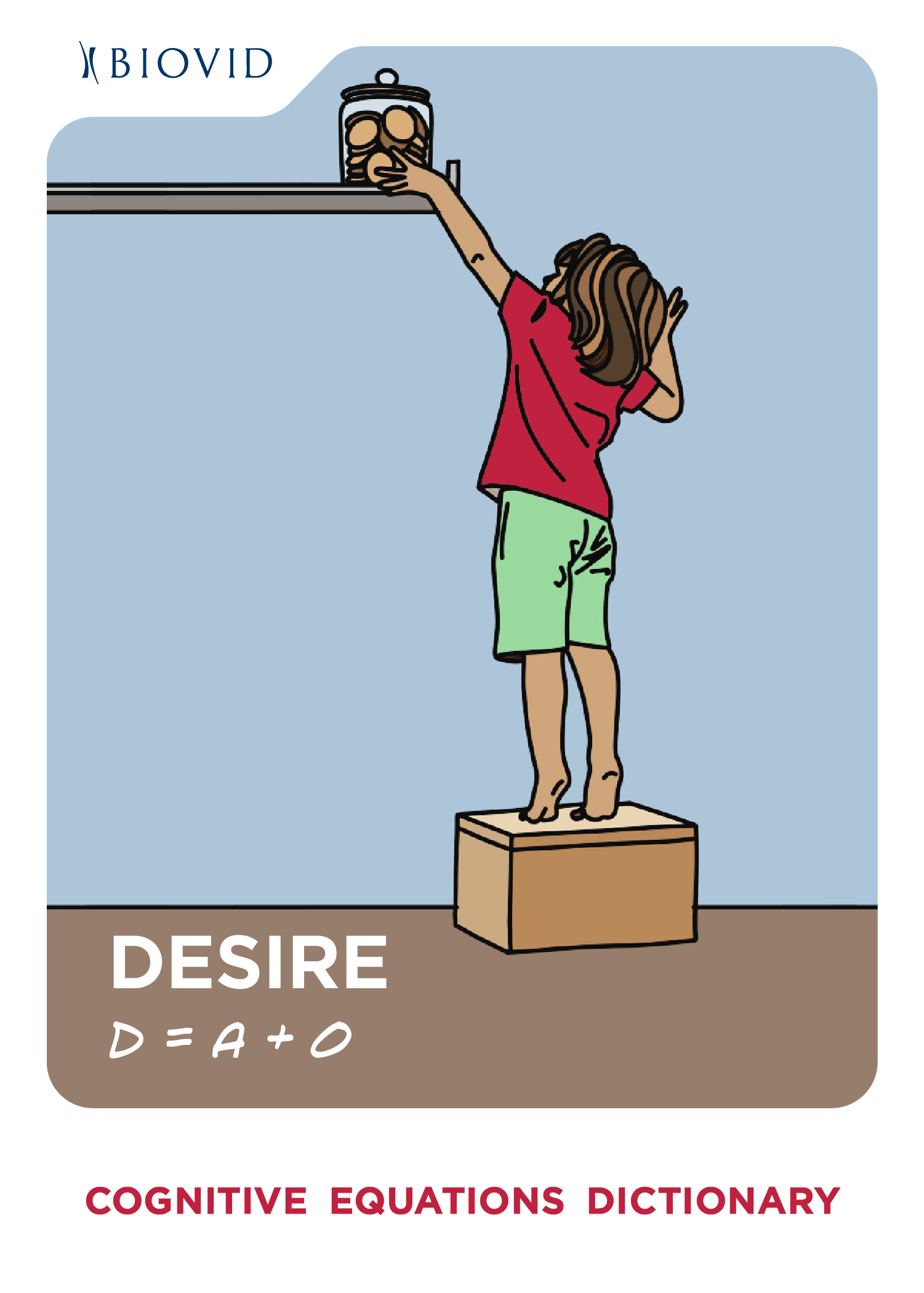
Desire: D = A + O, where D is Desire, A is Attraction, and O is Obstacles.
Desire is yearning for what is hard to get. Clinical psychologist Jack Morin's equation for desire is "attraction plus obstacles“. Obstacles make the desired object more valuable, heightening desire. Morin believed that desire is more intense when we have to work for what we want, highlighting the complexity of desire and the role of challenges in creating and sustaining it.
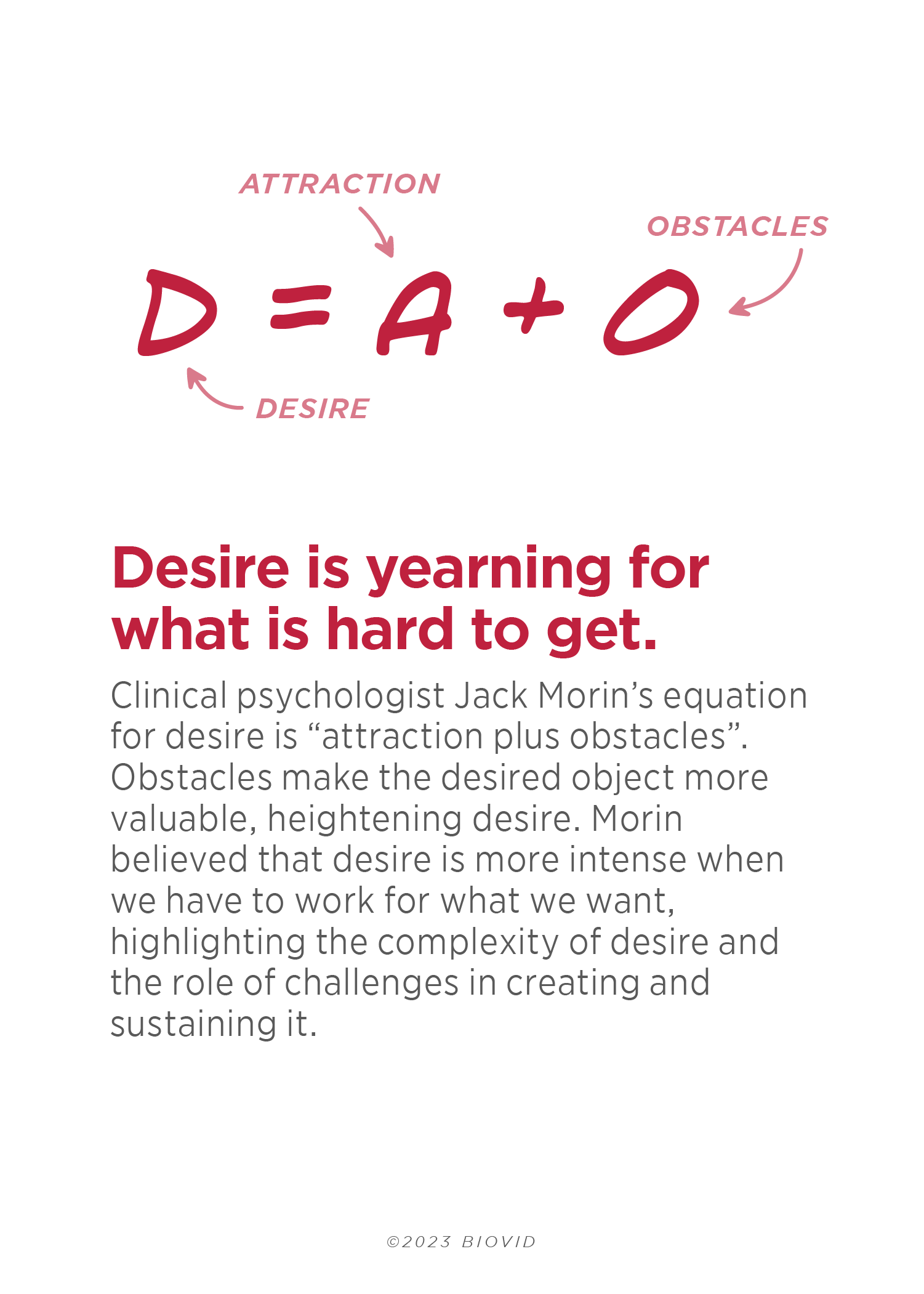
Worry: W = -(A)
BioVid Cognitive Equations Dictionary
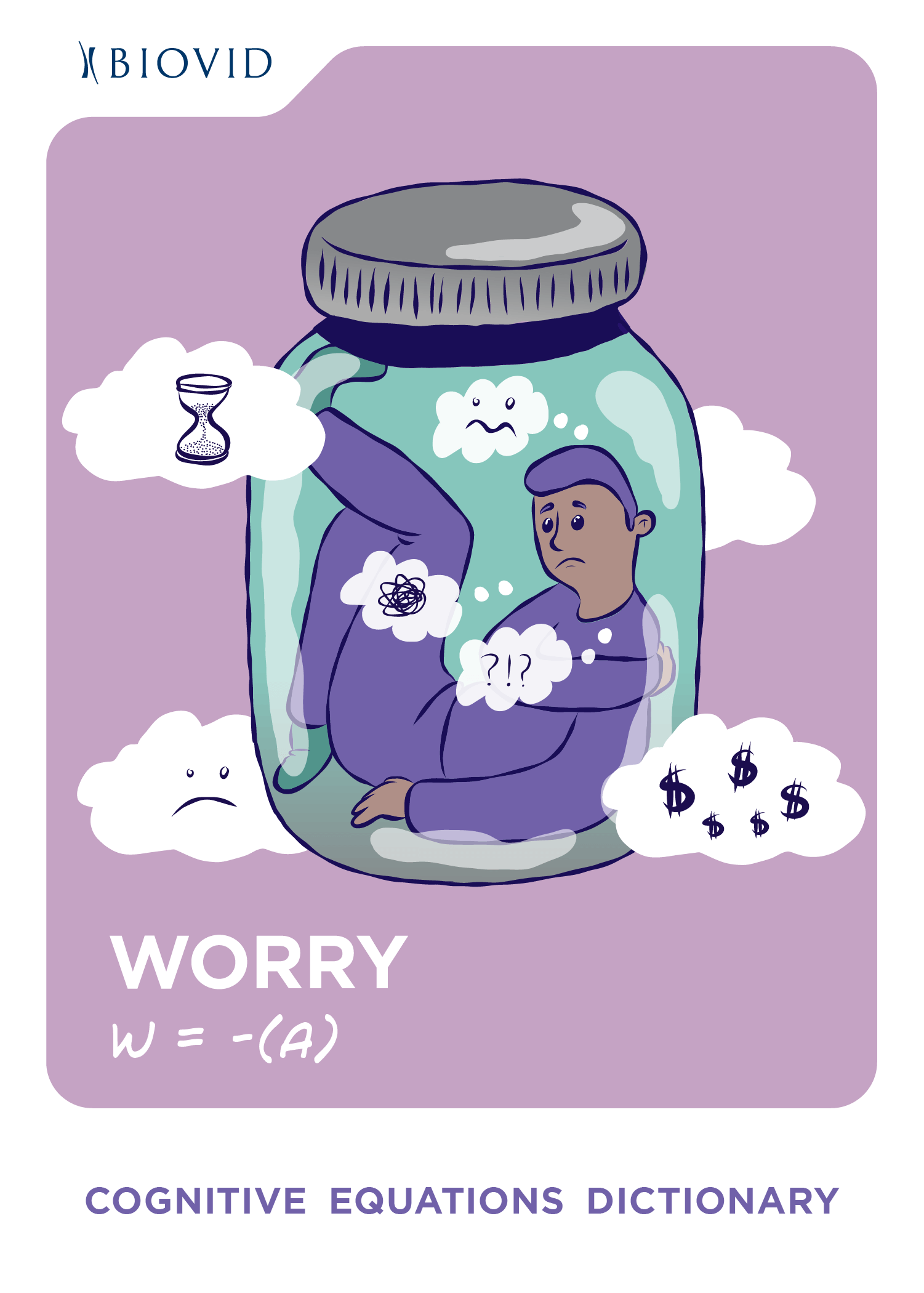
Worry: W = -(A), where W is Worry, - is Negative, and A is Anticipation.
Worry is hope’s negative twin. From a psychological perspective, worry refers to anticipating potential negative outcomes or uncertainties. It's a form of cognitive activity that is future-oriented and involves thinking about potential threats, problems, or adverse situations. While a certain amount of worry can be adaptive, prompting caution and preparation, excessive worry can be maladaptive.
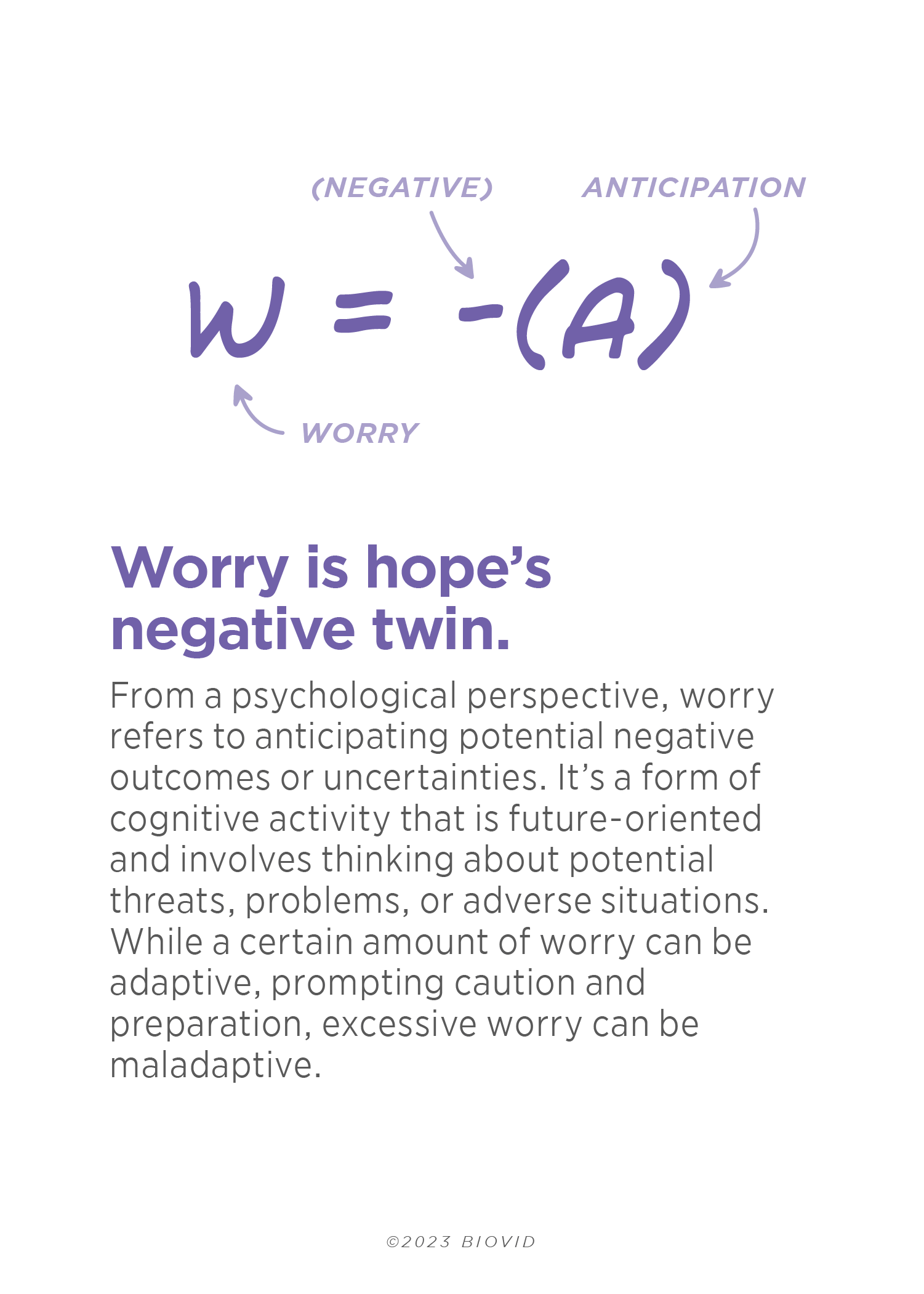
Hope: H = +(A)
BioVid Cognitive Equations Dictionary
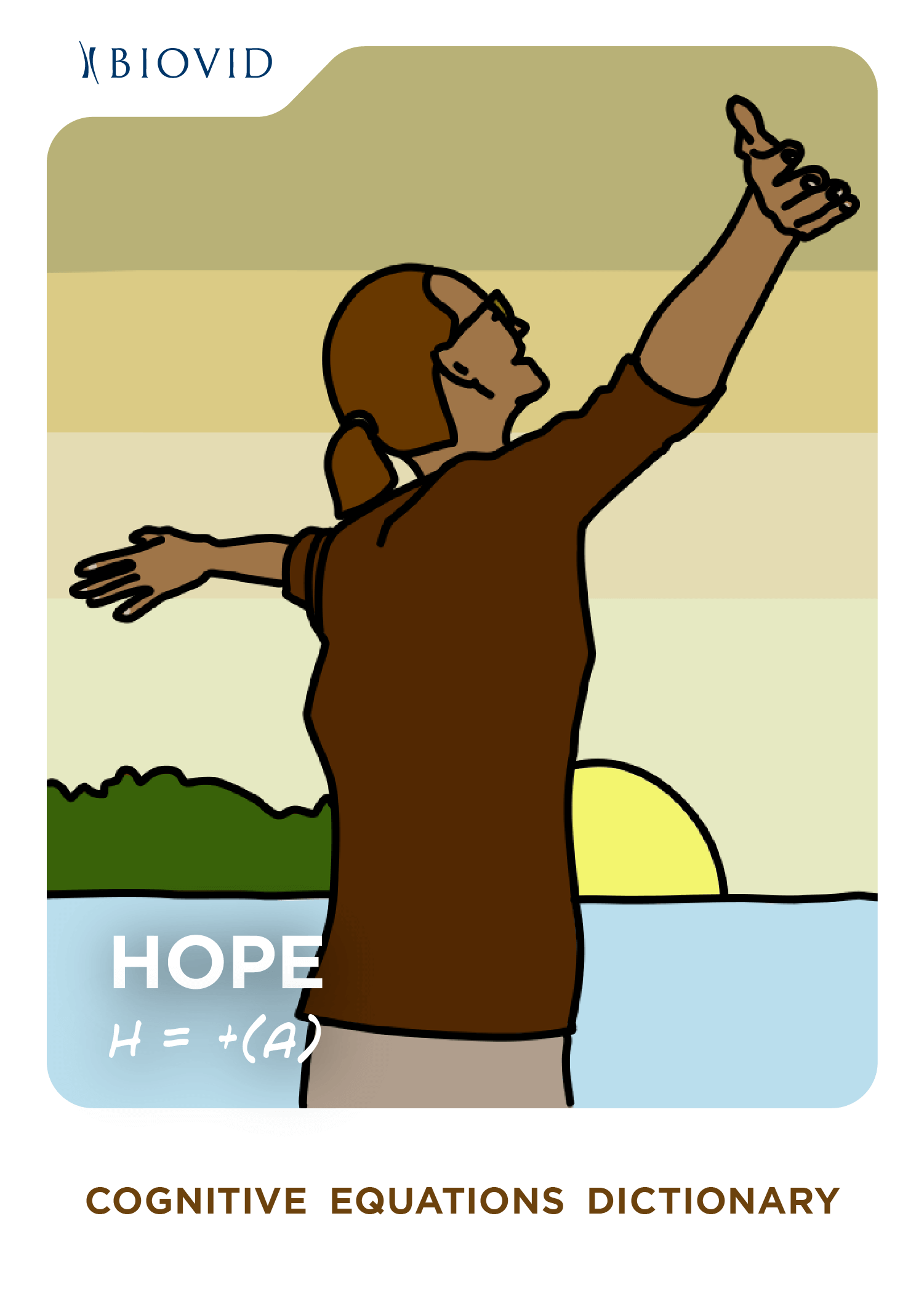
Hope: H = +(A), where H is Hope, + is Positive, and A is Anticipation.
Hope is worry’s positive twin. Hope is a positive anticipatory emotion. It reflects pleasure about the prospect that a desired future state will be achieved or that an undesired future state will be avoided. In general, it includes feelings of optimism about how a given situation will unfold over time.
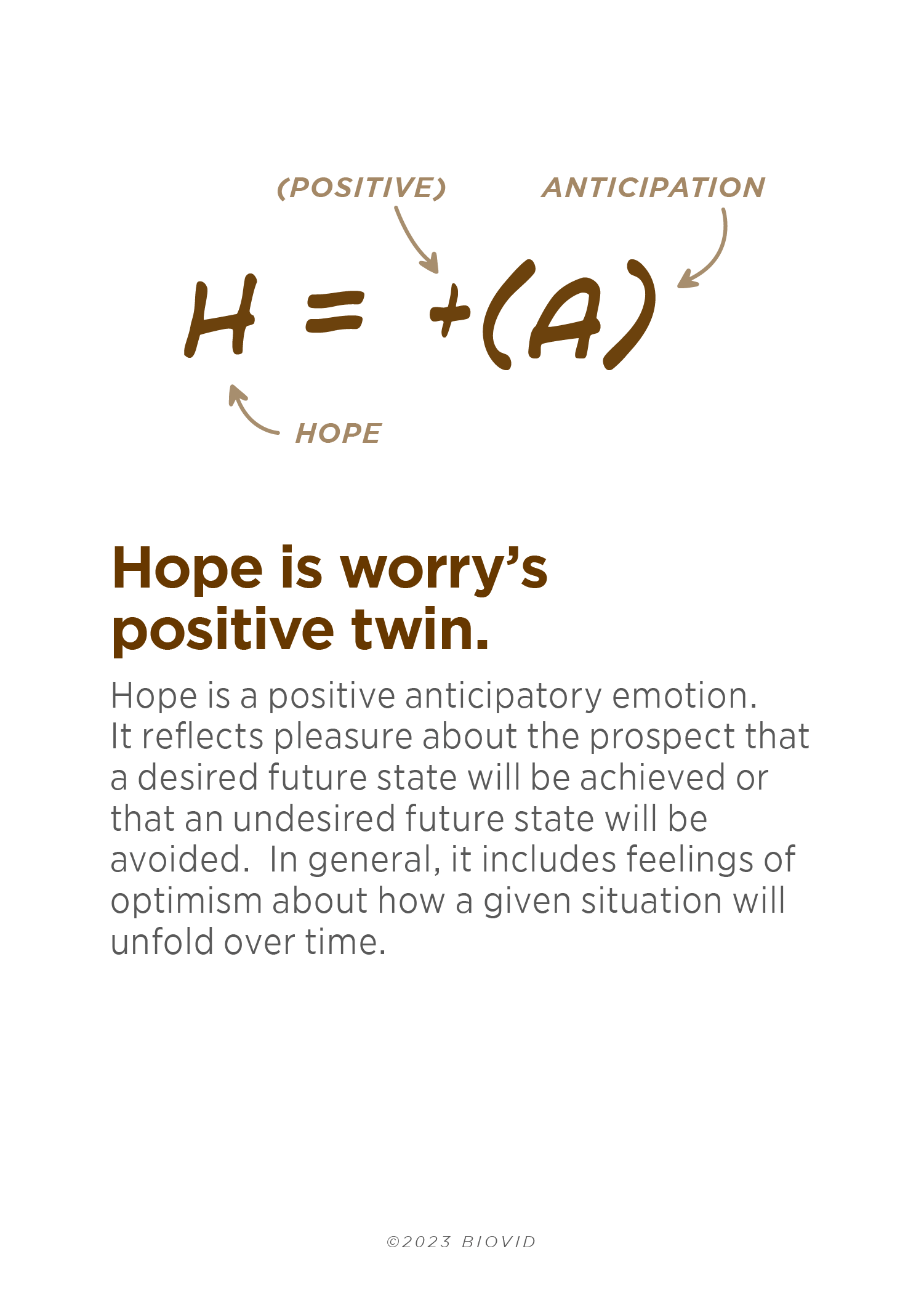
Loneliness: L = NE(DSC - ASC)
BioVid Cognitive Equations Dictionary
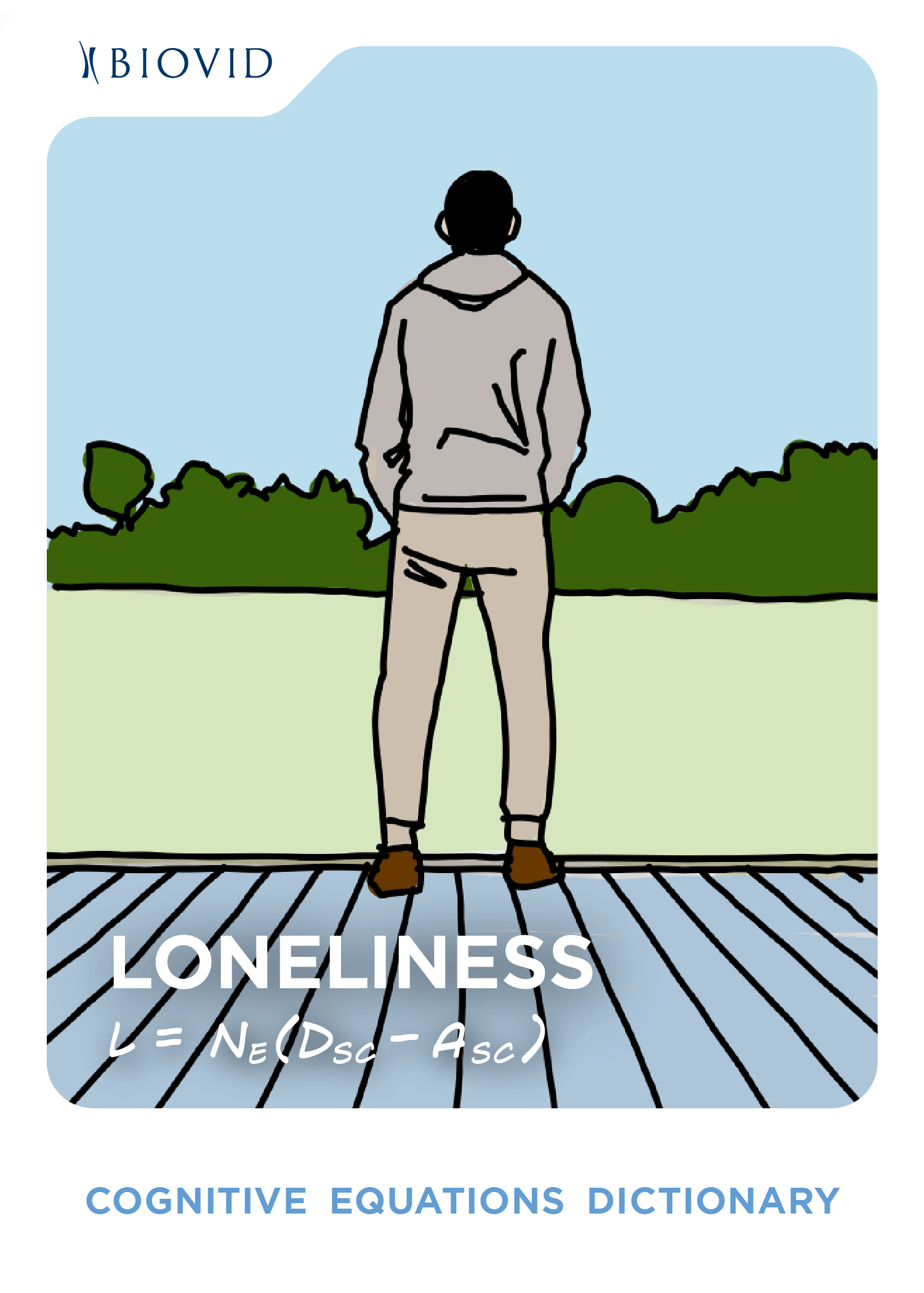
Loneliness: L = NE(DSC - ASC), where L is Loneliness, NE is a Negative Experience, DSC is Desired Social Connection, and ASC is Actual Social Connection.
Loneliness is a negative experience associated with deficits between desired & actual social connection. Loneliness is a negative experience rooted in a mismatch between our desire for meaningful social connection and the reality of our relationships. Social science research suggests this isn't simply about being alone, but the quality and depth of our connections. We can feel lonely even in a crowd if those around us don't fulfill our need for closeness and understanding.
